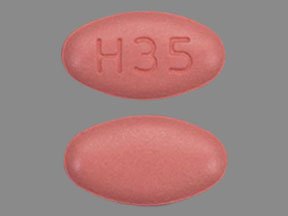Cedazuridine/decitabine Disease Interactions
There are 3 disease interactions with cedazuridine / decitabine.
Decitabine (applies to cedazuridine/decitabine) liver impairment
Moderate Potential Hazard, Moderate plausibility. Applicable conditions: Liver Disease
There are no data on the use of decitabine in patients with hepatic dysfunction. Decitabine should be used with caution in these patients.
Decitabine (applies to cedazuridine/decitabine) hematological toxicity
Moderate Potential Hazard, Moderate plausibility. Applicable conditions: Thrombocytopenia, Neutropenia
Treatment with decitabine is associated with neutropenia and thrombocytopenia. It is recommended to consider the need for early institution of growth factors and/or antimicrobial agents for the prevention or treatment of infections in patients with myelodysplastic syndromes (MDS). Complete blood and platelet counts should be performed as needed to monitor response and toxicity, but at a minimum, before each dosing cycle. After administration of the recommended dosage for the first cycle, treatment for subsequent cycles should be adjusted according to manufacturer recommendations. Myelosuppression and worsening neutropenia may occur more frequently in the first or second treatment cycles and may not necessarily indicate progression of underlying MDS. Closely monitor patients at risk for hematological toxicities.
Decitabine (applies to cedazuridine/decitabine) renal dysfunction
Moderate Potential Hazard, Moderate plausibility.
There are no data on the use of decitabine in patients with renal dysfunction. Decitabine should be used with caution in these patients.
Switch to professional interaction data
Cedazuridine/decitabine drug interactions
There are 231 drug interactions with cedazuridine / decitabine.
Cedazuridine/decitabine alcohol/food interactions
There is 1 alcohol/food interaction with cedazuridine / decitabine.
More about cedazuridine / decitabine
- cedazuridine/decitabine consumer information
- Check interactions
- Compare alternatives
- Reviews (5)
- Side effects
- Dosage information
- During pregnancy
- Drug class: antineoplastic combinations
- En español
Related treatment guides
Drug Interaction Classification
| Highly clinically significant. Avoid combinations; the risk of the interaction outweighs the benefit. | |
| Moderately clinically significant. Usually avoid combinations; use it only under special circumstances. | |
| Minimally clinically significant. Minimize risk; assess risk and consider an alternative drug, take steps to circumvent the interaction risk and/or institute a monitoring plan. | |
| No interaction information available. |
See also:
Further information
Always consult your healthcare provider to ensure the information displayed on this page applies to your personal circumstances.


